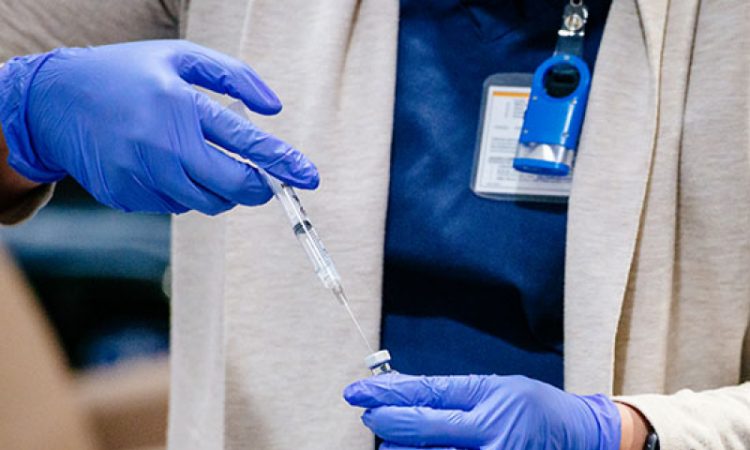
Since the introduction of the COVID-19 vaccines, numerous myths and misconceptions have emerged, causing confusion and hesitancy among the public. Understanding the facts about COVID vaccination is essential for making informed decisions. This article aims to debunk some of the most common myths surrounding COVID vaccination, providing clarity and accurate information.
Myth: COVID Vaccines Were Rushed and Are Unsafe
Fact: Rigorous Testing and Monitoring
One of the most prevalent myths is that COVID vaccines were developed too quickly and therefore must be unsafe. In reality, the vaccines underwent extensive testing in clinical trials to ensure their safety and efficacy. These trials involved tens of thousands of participants from diverse backgrounds.
Additionally, regulatory agencies like the Health Sciences Authority (HSA) in Singapore, the U.S. Food and Drug Administration (FDA), and the European Medicines Agency (EMA) conducted thorough reviews before granting approval. Post-approval, continuous monitoring ensures that any rare side effects are quickly identified and addressed.
Myth: COVID Vaccines Alter Your DNA
Fact: No Interaction with DNA
Some people believe that COVID vaccines, particularly those using messenger RNA (mRNA) technology, can alter a person’s DNA. However, mRNA vaccines, such as Pfizer-BioNTech and Moderna, do not interact with or alter DNA.
Instead, they instruct cells to produce a protein that triggers an immune response, which helps the body recognize and fight the virus if exposed in the future. This process does not involve any changes to the individual’s genetic material.
Myth: Natural Immunity is Better Than Vaccine-Induced Immunity
Fact: Vaccination Provides More Reliable Protection
Another common misconception is that natural immunity from contracting COVID-19 is superior to vaccine-induced immunity. While recovering from a COVID-19 infection can provide some level of immunity, it is unpredictable and varies from person to person. COVID vaccination, on the other hand, has been shown to provide a more consistent and robust immune response.
Vaccines also reduce the risk of severe illness, hospitalization, and death. Given the potential complications and long-term effects of COVID-19, vaccination is the safer and more reliable option for building immunity.
Myth: COVID Vaccines Cause Severe Side Effects
Fact: Side Effects Are Generally Mild and Temporary
Concerns about severe side effects from COVID vaccination have been widespread. While it is true that some people experience side effects, they are generally mild and temporary. Common side effects include pain at the injection site, fatigue, headache, muscle pain, chills, fever, and nausea.
These symptoms typically resolve within a few days. Severe allergic reactions are extremely rare, and healthcare providers are prepared to manage them should they occur. The benefits of vaccination far outweigh the risks of side effects.
Myth: COVID Vaccines Are Not Effective Against Variants
Fact: Vaccines Offer Protection Against Variants
As new variants of the virus have emerged, some individuals worry that COVID vaccines are no longer effective. While it is true that variants can impact vaccine efficacy to some extent, studies have shown that COVID vaccination still provides significant protection against severe disease, hospitalization, and death caused by variants such as Delta and Omicron.
Boosters are being developed and administered to enhance protection against evolving strains, ensuring continued effectiveness.
Myth: COVID Vaccines Cause Infertility
Fact: No Evidence of Impact on Fertility
A particularly troubling myth is that COVID vaccines can cause infertility in both men and women. There is no scientific evidence to support this claim. COVID vaccines do not affect reproductive organs or fertility.
Numerous studies and real-world data have confirmed that vaccination does not impact the ability to conceive or carry a pregnancy to term. Healthcare authorities, including the World Health Organization (WHO), have stated that COVID vaccination is safe for individuals planning to have children.
Myth: Once Vaccinated, You Don’t Need to Follow Safety Measures
Fact: Continued Precautions Are Necessary
Some people believe that once they are vaccinated, they no longer need to follow public health measures such as wearing masks or social distancing. While vaccination significantly reduces the risk of severe illness, it is still possible to contract and spread the virus.
Continuing to follow safety measures helps protect those who are not yet vaccinated, including children and individuals with certain health conditions. Public health guidelines may evolve as more people get vaccinated and new information becomes available.
Conclusion
Dispelling myths and understanding the facts about COVID vaccination is crucial for making informed decisions and protecting public health. The COVID vaccines have undergone rigorous testing and are continually monitored to ensure safety. They provide reliable protection against severe disease and are effective against variants.
Side effects are typically mild and temporary, and there is no evidence that vaccines affect fertility. Even after vaccination, it is important to continue following public health measures to protect the community. By relying on accurate information and expert guidance, we can navigate the pandemic more effectively and work towards a healthier future.




